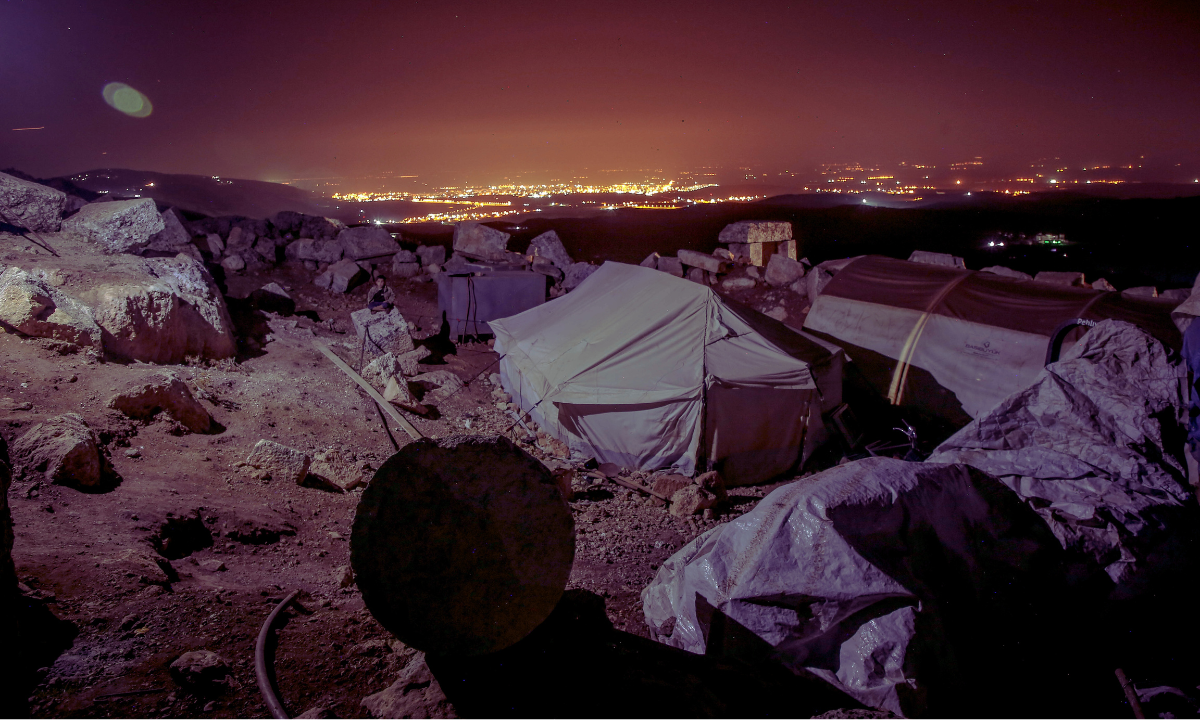
Global Aid and Development
About This Collection
Canada’s aid and international cooperation system is at a crossroads. With the climate crisis, slew of humanitarian responses, rising extreme poverty rates, gender-based violence, a growing debt crisis, and global refugee crisis, what is in store for Canada?
Ready to deliver supplies, Canadian aid organizations remain stuck outside Gaza’s borders
Aid organizations are still subject to new registration requirements that require them to give details about their staff to the Israeli authorities. Many organizations have decided this is a line they will not cross, meaning they cannot deliver critical aid to Palestinians.
Canadian aid orgs prepare as UN outlines 60-day plan for help in Gaza
For two years, Canadian aid organizations have struggled to get help to starving and injured Palestinians, as most borders were shuttered to international help. While the ceasefire is on, food, medicine and supplies must flow unimpeded into the region.
Canadian aid agencies press Ottawa to action after UN rules Gaza conflict constitutes genocide
The UN Commission’s genocide finding compels governments to act on their legal and moral obligations. For Canadians, the crisis exposes the tension between the urgent calls for humanitarian access and Ottawa’s cautious diplomatic approach. How world leaders respond will set a precedent for whether international law is enforced when entire populations face death.
Global Affairs Canada commits $2 million in funding for prosthetics in Gaza
The commitment by Global Affairs Canada signals strong international recognition of the crisis in Gaza and a commitment to long-term support. However, blockades are still preventing help from flowing freely into the area, and organizers say the program will shut down in a few months if blockades aren’t lifted.
Canadian non-profits demand action from international community as Israeli invasion of Gaza City begins
More than 60,000 civilians have died and hundreds of thousands more have been injured since Oct. 6, 2023 in the Gaza Strip. Israel's plan to invade the city will only worsen the humanitarian crisis by leading to disease, more hunger and trauma for a population already on the verge of starvation. Local charities say Canada's lack of condemnation of these actions cannot be ignored.
‘Educational defiance’: In Gaza, makeshift classrooms keep hope alive amid war and hunger
Resiliance in Palestine is showing up in unexpected ways, including in the classrooms that have sprung up in tents and ruins of Gaza. War can erase culture; therefore it's important to preserve literacy as much as possible.
How a digital archive is fighting to save memories of pre-Nakba Palestine
Aside from the loss of life during a genocide, the loss of identity and culture is one of the most damaging things invaders can do to a society. But technology is making it easier to prevent that loss, even when resources are scarce.
Morocco’s overlooked waste pickers building a cleaner, fairer future
Across Morocco, tens of thousands of people scrape by on the margins, sorting through garbage for survival. Informal waste pickers, many of them women and children, are essential to the country’s recycling system, yet they remain legally invisible, unprotected, and stigmatized.
Need a loan? In Ghana, neighbours are helping neighbours
In Ghana's rural communities, Village Savings and Loan Associations are powerful, neighbour-to-neighbour systems that offer crucial access to credit and foster economic resilience. Community-based finance solutions could lift countless people out of poverty.
Ghana's Lake Bosomtwe farmers fight pests and lake loss with science and tradition
The challenges farmers face at Lake Bosomtwe, from pests to lake loss, exemplify global environmental crises. Their integrated approach to solutions offers crucial lessons for other regions facing similar pressures, emphasizing community-led action.
Egypt’s first charity thrift shop opens amidst widening gap between rich and poor
Egypt has a deep-rooted cultural stigma against buying second-hand clothing and goods. However, recent economic realities mean that a new charity thrift shop has proved more popular than expected.
When mosquitoes fly, AI listens: Ghana’s plan to prevent pandemics
An AI-led approach could reshape health strategies by offering a scalable, data-driven way to combat vector-borne diseases like malaria, yellow fever, and dengue—saving lives in regions most affected by these illnesses.
Garbage idea? How the University of Victoria teamed with waste pickers in Brazil to build a university
Empowering global learning goes beyond supporting institutions with funds. This is a prime example of building knowledge across cultures, languages and even continents while helping solve the climate crisis.
How villages banded together to rebuild Yemen’s schools amid war
Canada's support in rebuilding schools in war-torn countries is vital, as it helps restore educational opportunities for children, fostering hope and stability for future generations. However, it's important that local communities drive the efforts to ensure that the reconstruction aligns with their needs and culture.
A year of war: For Gaza’s children, their home is little more than a graveyard
How warring parties treat children is a significant indicator of whether international laws of war are being respected, according to Save the Children
Children spearhead change in Worst Child Labour countries
Evidence from Bangladesh and Nepal shows that children can understand their exploitation and offer meaningful solutions. Engaging them is critical to developing more effective strategies to combat the worst forms of child labour.
What Canada can learn from successful cash aid programs in war zones
While basic food staples, clean water and health care services are always needed amid disaster, having cash allows families to choose what they need rather than be given whatever goods come their way.
